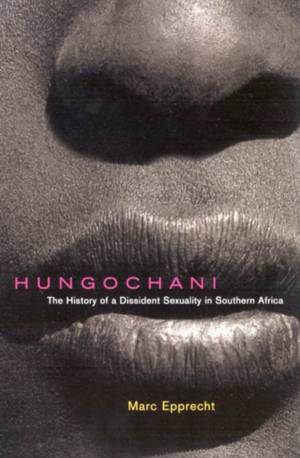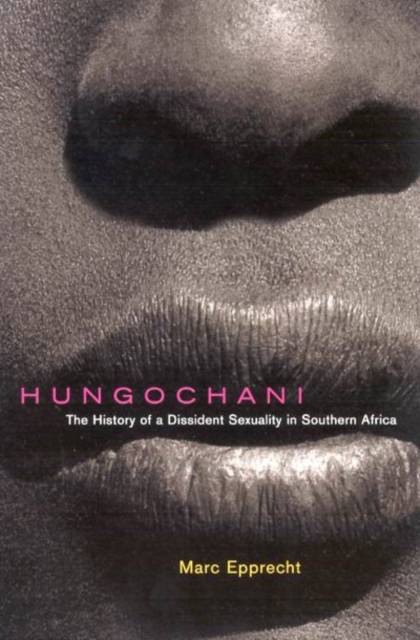
- Afhalen na 1 uur in een winkel met voorraad
- Gratis thuislevering in België vanaf € 30
- Ruim aanbod met 7 miljoen producten
- Afhalen na 1 uur in een winkel met voorraad
- Gratis thuislevering in België vanaf € 30
- Ruim aanbod met 7 miljoen producten
Zoeken
Hungochani
The History of a Dissident Sexuality in Southern Africa, Second Edition
Marc Epprecht
Paperback | Engels
€ 48,45
+ 96 punten
Omschrijving
In the tapestry of global queer cultures Africa has long been neglected or stereotyped. In Hungochani, Marc Epprecht seeks to change these limited views by tracing Southern Africa's history and traditions of homosexuality, modern gay and lesbian identities, and the vibrant gay rights movement that has emerged since the 1980s. Epprecht explores the diverse ways African cultures traditionally explained same-sex sexuality and follows the emergence of new forms of gender identity and sexuality that evolved with the introduction of capitalism, colonial rule, and Christian education. Using oral testimony, memoirs, literature, criminal court records, and early government enquiries from the eighteenth century to the present, he traces the complex origins of homophobia. By bringing forth a wealth of evidence about once-hidden sexual behaviour, Epprecht contributes to the honest, open discussion that is urgently needed in the battle against HIV/AIDS. Homosexuality - or hungochani as it is known in Zimbabwe - has been denounced by many politicians and church leaders as an example of how Western decadence has corrupted African traditions. However, a bold, new gay rights movement has emerged in several of the countries of the region since the 1980s, offering an exciting new dimension in the broad struggle for human rights and democracy unfolding on the continent. In a new preface to this edition, Epprecht considers the recent advances of equality on the continent such as the legalization of same-sex marriage in South Africa, as well as discriminatory setbacks such as Uganda's anti-homosexuality legislation.
Specificaties
Betrokkenen
- Auteur(s):
- Uitgeverij:
Inhoud
- Aantal bladzijden:
- 360
- Taal:
- Engels
Eigenschappen
- Productcode (EAN):
- 9780773541719
- Verschijningsdatum:
- 23/05/2013
- Uitvoering:
- Paperback
- Formaat:
- Trade paperback (VS)
- Afmetingen:
- 155 mm x 231 mm
- Gewicht:
- 680 g

Alleen bij Standaard Boekhandel
+ 96 punten op je klantenkaart van Standaard Boekhandel
Beoordelingen
We publiceren alleen reviews die voldoen aan de voorwaarden voor reviews. Bekijk onze voorwaarden voor reviews.








